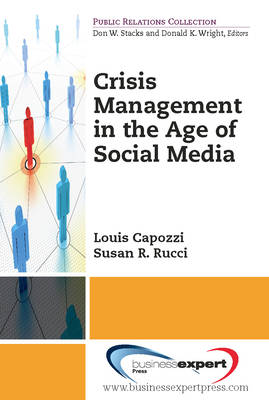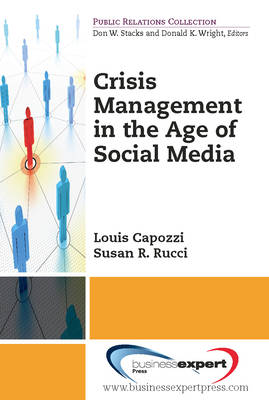
- Afhalen na 1 uur in een winkel met voorraad
- Gratis thuislevering in België vanaf € 30
- Ruim aanbod met 7 miljoen producten
- Afhalen na 1 uur in een winkel met voorraad
- Gratis thuislevering in België vanaf € 30
- Ruim aanbod met 7 miljoen producten
Zoeken
Omschrijving
Social media has fundamentally changed the contract between institutions and the public. Today, people expect a conversation, not a one-way diatribe. That, combined with the speed of the Internet, changes the game for many companies in anticipating, managing, and ultimately avoiding an "instant crisis"-an instant crisis example is when Verizon added a $2 charge for all their customers; one hour later 100,000 signatures appeared on a Twitter petition, and soon Verizon was in the middle of a huge public relations crisis. Inside this book, you'll learn just how to manage this type of situation and meet the challenges of social media. Each chapter includes a description of a crisis, the timeliness of a good response, the effectiveness of this response, and an assessment of what works and what doesn't. Some examples of social media crises include Apple Computer, Netflix, JetBlue, Bank of America, Fed Ex, and public figures such as Anthony Weiner, Ashton Kutcher, and Jon Bon Jovi.
Specificaties
Betrokkenen
- Auteur(s):
- Uitgeverij:
Inhoud
- Aantal bladzijden:
- 156
- Taal:
- Engels
Eigenschappen
- Productcode (EAN):
- 9781606495803
- Verschijningsdatum:
- 2/07/2013
- Uitvoering:
- Paperback
- Formaat:
- Trade paperback (VS)
- Afmetingen:
- 152 mm x 229 mm
- Gewicht:
- 217 g

Alleen bij Standaard Boekhandel
+ 61 punten op je klantenkaart van Standaard Boekhandel
Beoordelingen
We publiceren alleen reviews die voldoen aan de voorwaarden voor reviews. Bekijk onze voorwaarden voor reviews.








